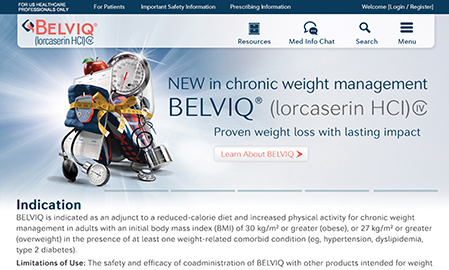Havas Lynx’s leadership said that it was “creating a new kind of agency” when the brand was birthed in the wake of the merger between Euro RSCG Life 4D and Creative Lynx. So it seems appropriate, nearly two years later, to check back in on the firm’s progress and, in particular, on whether clients have bought into its tech-forward vision.
Clearly, the ambition and confidence remain intact. Larry Mickelberg, partner, chief digital officer of Havas Health and president of Havas Lynx US, is even willing to double-down on the big-picture pronouncements. He stresses that Lynx has “defined a new category,” that it “is not an ad agency” and that it has “gotten where [it] wants to be right on time.” After those self-assessments, Mickelberg lets out a chuckle and adds, “[Lynx chief creative officer] Erik [Mednis] is wincing.”
Mednis laughs and gives a more cautious review. “I think we may have been a little bit ahead of the curve, in terms of recognizing that there would be a change in the landscape of health and how companies like us work with clients. But just like with any other agency, our success and our clients’ success are tied together.”
So, to summarize: Life’s good at Lynx. As he toes the Havas corporate policy line about not revealing specifics about… well, anything, Mickelberg reports that headcount is around 200 and that the agency’s “extremely aggressive forecast” has Lynx on pace to match or better 2013’s growth of more than 20%. At the same time, he’s candid about the challenges the agency has faced during its first 18 months, particularly when it comes to gun-shy clients.
Mickelberg is quick to admit that some of what Lynx proposed was, perhaps even justifiably, viewed with skepticism by healthcare entities who had never before dabbled in social media or mobile. “Our true north hasn’t changed,” he says. “We believed then and believe now in the value of a singular experience over time… At times, maybe it was frustrating, that in our minds we were able to see and intrinsically understand the future maybe a little ahead of the people we were trying to relate to.”
Mednis’s take on the same matter? “I like to think we’ve been able to lead that change in thinking for a lot of folks.”
All of the he-said-he-said banter aside, Lynx has walked the walk. From day one, the company swore it wasn’t interested in rehashed approaches. From day one, it has gone all-in on its vision of a transformed healthcare customer environment, one in which all-encompassing experiences trump isolated brand interactions. “People don’t sit down at their keyboard just to have a health session,” Mednis says.
Articulating this new strategy was one thing; transporting it from the realm of the theoretical was another. “Forward-leaning, health-experienced talent to execute our vision—those people don’t exist,” Mickelberg says. “We’ve had to identify high-potential individuals, recruit and hire them, then mold them into our image… It’s been an absolute war.”
It’s a war, one senses, that the Lynx team is eager to wage. In the months ahead, look for the agency to remain in growth mode, possibly via the addition of partner firms in South America and Asia. Similarly, Mednis expects there to be a slight shift in the client mix. “We’ll still be in the business of brands, but maybe we’ll be working with more health tech or health service startups” he says. “Maybe we’ll be working with groups in the R&D areas of these companies.”
From the July 01, 2014 Issue of MM+M - Medical Marketing and Media








